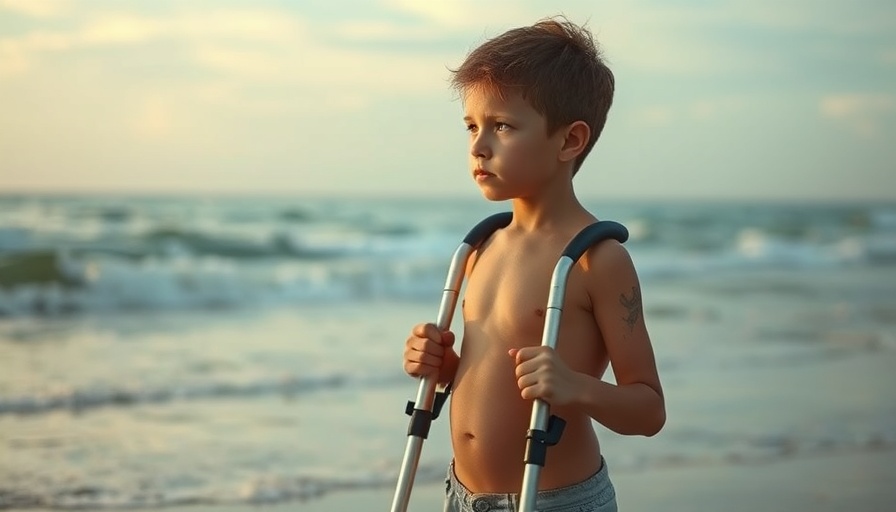
Gaza's Dire Situation: A Humanitarian Crisis
Amidst the ongoing conflict in Gaza, a severe humanitarian crisis unfolds, particularly affecting children who now face an unprecedented crisis—amputations. The United Nations has reported that Gaza is home to the largest population of child amputees in modern history. The numbers are staggering: estimates suggest that between 5,000 to 6,000 Palestinians have lost limbs since October 2023 due to the relentless bombardment and destruction caused by the war.
In 'War leaves Gaza with modern history’s worst child amputee crisis amid aid blockade,' the video highlights the urgent humanitarian crisis in Gaza, particularly affecting children, prompting a deeper analysis of this tragedy.
Survival and the Need for Prosthetics
In the wake of such catastrophic injuries, survival alone does not equate to hope. Survivors are grappling not only with physical disabilities but also with the psychological toll of the trauma. Organizations like the Red Cross are striving to provide critical services to these amputees, having recently followed up on over 500 new amputation cases. However, with the blockade on Gaza tightening, the challenges in delivering prosthetic devices and essential medical supplies are mounting by the day.
A Glimmer of Hope Amidst Hardship
Despite these debilitating circumstances, local technicians in Gaza are innovating by creating prosthetic limbs from recycled materials. They are pushing the limits of what can be done in a conflict zone, crafting vital tools to help young amputees reclaim their semblance of normal life. The story of one survivor, who lost limbs when his home was bombed, illustrates this resilience. He found hope and a renewed sense of purpose after receiving a prosthetic, enabling him to venture out and engage with his community once more.
The Unyielding Psychological Impact
For many, this nightmare extends beyond physical recovery. The fate of Gaza’s children goes hand in hand with the broader implications of the conflict. As they navigate life with altered bodies, they also carry the heavy psychic burden of war and loss—something that is sadly inescapable, regardless of one’s will to survive. This dire situation demands international attention and action to relieve the suffering and to support the healthcare workers striving against overwhelming odds.
As news of this crisis spreads, it is high time for the global community to respond with more than just words or fleeting attention. Solutions must transcend humanitarian aid and address the root causes of the conflict. The lives of innocent children hang in the balance, and their future, once bright, is now shadowed by the prospect of living with disabilities. In this context, we must all ask ourselves: What can we do to support those in need?
 Add Row
Add Row  Add
Add 




Write A Comment